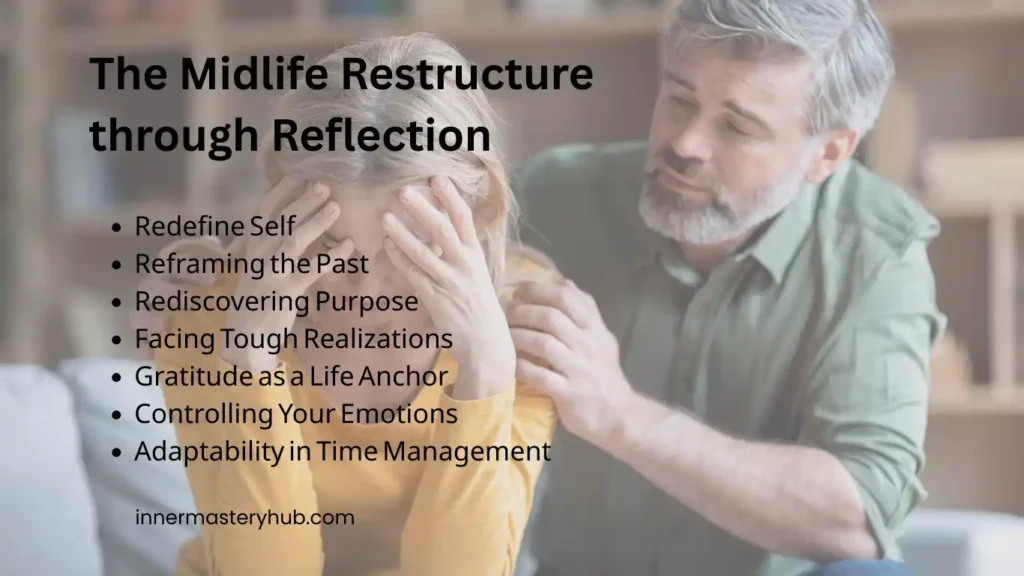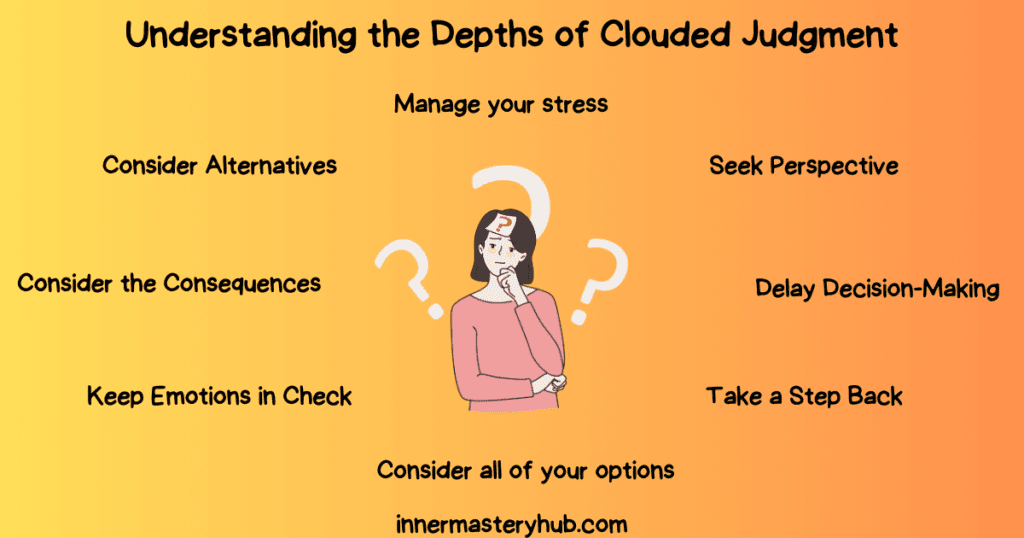Pent-up aggression: Causes, effects, and 16 ways to manage

The simmering storm within
I have always been a little hot-headed. Although I may appear calm on the outside, I harbor a seething tempest of repressed anger that is just waiting to be let go.
Admitting that I’m not alone is difficult for me. Pent-up anger is a problem for many of us, whether it stems from stress, frustration, or unresolved trauma.
Pent-up hostility has the drawback of not simply disappearing. It continues to develop until it finally manages to manifest itself. It can occasionally appear innocuously, such as in sarcasm or passive-aggressive behavior. However, in other cases, it may trigger more violent or destructive outbursts, such as rage, anger, or even violence.
You’re not alone if you’re struggling to release repressed anger. There is assistance available. You can regulate your anger and keep it from taking over your life by doing certain things.
I’ll talk about my experiences dealing with pent-up rage in this blog, along with some helpful coping mechanisms. I hope that by sharing my story, others who are facing similar challenges may find it easier.
What Is Pent-Up Aggression?
Pent-up aggression explains how frustration and anger are silent or restricted over time. It’s like an emotional pressure cooker when unfavorable feelings accumulate inside a person without a healthy outlet to release them.
Various factors, including societal expectations, fear of consequences, childhood experiences, mental health conditions, or even not knowing how to deal with and express anger successfully, might cause this.
Symptoms of Pent-Up Aggression
While there are many signs of pent-up aggression, impatience, mood swings, and overreacting to minor annoyances are common ones. A person’s mental and physical health can be negatively impacted by pent-up rage and resentment; it can occasionally result in elevated blood pressure, tension headaches, anxiety, and depression.
There may also be a connection between several forms of anger disorders, including repressed rage and intermittent explosive disorder (IED). These are a few typical symptoms:
- irritation
- difficulty focusing
- constantly on edge
- Difficulty sleeping
- hurting or criticizing others

What Causes Pent-up Anger?
Several factors can contribute to pent-up anger, including:
- Childhood experiences: People who were abused, neglected, or subjected to various types of trauma as children may find it more difficult to express their anger healthily.
- Personality traits: Some individuals are more prone to anger than others. Early events or hereditary factors could be to blame for this.
- Unmet needs: People may become irate and dissatisfied when their needs are not satisfied. Those who struggle to articulate their demands may find this to be particularly true.
- Misunderstanding or feeling ignored: When people believe they are not being understood or heard, they may become irate. Those who struggle to express their thoughts and emotions may find this to be particularly true.
- Misunderstanding or feeling ignored: When people believe they are not being understood or heard, they may become irate. Those who struggle to express their thoughts and emotions may find this to be particularly true.
- A person may become irate if they believe they have been maltreated. Those with a strong sense of justice may find this to be particularly true.
- Mental health issues: Several mental health conditions, including anxiety, depression, and post-traumatic stress disorder (PTSD), might raise the likelihood of repressed anger.
It is important to note that a single factor does not always cause pent-up anger. In many cases, it is a result of a combination of factors. Failing to recognize these causes can have adverse effects on mental, emotional, and physical health, as well as on personal relationships and overall well-being.
Impacts of Pent-Up Anger
Pent-up anger can negatively impact mental and physical health. These impacts can include:
Mental health impacts
Stuck up Mental health issues, including stress, anxiety, and depression, can be brought on by rage. A normal emotion, anger can have a profound impact on both the body and the mind. Uncontrolled anger can accumulate and lead to internal conflict. This may result in trouble focusing, sleeping, and sustaining relationships.
Physical health impacts
A harmful effect on physical health might also result from pent-up rage. This is because stress hormones, such as cortisol, can be released by the body when anger is present. These hormones can cause bodily issues like heart problems, high blood pressure, migraines, and stomachaches. Furthermore, repressed anger can impair the immune system, increasing a person’s vulnerability to disease.
Emotional Health Impacts
When someone is dealing with pent-up anger, they could get easily agitated or frustrated. They might also struggle to focus or fall asleep. Feelings of worry or despair may eventually result from these undesirable emotions.
Additionally, guilt or shame might result from pent-up violence. This is because many who struggle with rage may believe that their feelings are improper or harmful. Healthy ways of expressing rage can be further complicated by these feelings of guilt and shame.
Types Of Aggression: Externalized and Internalized Aggression
Generally, there are two types of Anger or Aggression:
Anger that has been externalised is often expressed in hostile or violent ways. Yelling, screaming, hurling objects, and physical aggression are examples of this. Relationship troubles and issues at work or school can result from externalized anger.
Repressed and inwardly directed fury is commonly referred to as internalized anger. Shame, remorse, or self-criticism are some ways this can show up. Anger that is internalized can result in anxiety, despair, and other mental health issues.
Men are generally thought to externalize their anger, whilst women attempt to internalize it, however, this isn’t always the case.
Anger can be destructive when it is internalized or externalized. They may also be warning signs of an issue, though. If you are having trouble controlling your anger, it’s crucial to find constructive ways to release it. Creating art, exercising, journaling, or speaking with a therapist or counselor are some examples of how to do this.
16 Healthy Strategies to Manage Pent-up Anger
Maintaining good relationships and emotional well-being depends on effectively managing pent-up rage. The following practical techniques can assist you in controlling your repressed anger:
1. Acknowledge and Identify Your Anger
Acknowledging your anger is the first step. Please recognize that this feeling is normal and that it’s OK.
2. Identify Triggers
Pay attention to what triggers your anger or triggers. Recognizing specific situations or people that cause your anger can help you better manage it.
3. Practice Deep Breathing
Deep breathing exercises can help calm your body’s stress response. Inhale deeply through your nose, hold for a few seconds, and then exhale slowly through your mouth.
4. Count to Ten
When you sense your wrath building, take a moment to count to ten before responding. By doing this, you can prevent impulsive outbursts.
5. Physical Activity
Enjoy physical activities such as jogging, yoga, or a brisk walk. Exercise can help release built-up tension and reduce anger.
6. Journaling
Record your emotions in a journal. Putting your ideas down on paper may provide a secure way to release your feelings.
7. Seek Support
Discuss your anger with a family member, close friend, or therapist. Expressing your emotions can help you gain perspective and feel better.
8. Practice Mindfulness and Meditation
Meditation and mindfulness practices can help you manage your emotions and stay present.
9. Use “I” Statements
When discussing problems with others, use “I” words to communicate your wants and feelings without placing blame or making accusations. Say, for instance, “I feel upset when…” rather than “You make me angry when…”
10. Problem-Solving
Instead of focusing on the problem, try to discover solutions if your anger is connected to it.
11. Anger Management Classes
To develop functional coping mechanisms and effective communication techniques, consider enrolling in workshops or programs focused on anger management.
12. Relaxation Techniques
Explore relaxation methods to alleviate stress and physical tension, such as progressive muscle relaxation or guided imagery.
13. Set Boundaries
Establish clear boundaries in your relationships to prevent situations that trigger your anger.
14. Focus on the present
During an angry episode, it is easy to become engrossed in dwelling on the past or worrying about the future. Focusing on the present is crucial, though. This can help you remain composed and refrain from saying or doing anything you later regret.
15. Be willing to forgive
Show forgiveness. Keeping grudges will increase your level of rage and bitterness. Try to forgive those who have hurt you. For your own benefit, you are letting go of the anger and resentment you are harboring, but it does not imply that you must forget what they did.
16. Professional Help
If your anger is causing significant problems in your life or relationships, consider seeking professional help from a therapist or counselor.
How Is Pent-Up Anger Treated?
Pent-up anger can be addressed in several ways, depending on its severity. Some common treatments include:
- Therapy can help individuals understand the underlying causes of their anger and develop effective coping strategies to manage it. For managing anger, cognitive-behavioral therapy (CBT) is a particularly successful type of treatment.
- Medication: In some situations, medication may help control anger. Medication is often only used in conjunction with therapy, though.
- Support networks: Support groups can provide people with a secure and encouraging space to discuss their experiences with anger management and receive advice from others who are going through similar struggles.
- Lifestyle modifications: Modifying one’s diet, exercising regularly, and getting sufficient sleep can all help individuals cope with stress and anger.
FAQS About Pent-Up Anger
How do you calm down pent-up anger?
Deep breaths, mindfulness, talking to a friend, or taking a walk. Release, reflect, and seek help if needed to calm pent-up anger.
What does pent-up anger mean?
“Pent-up” refers to emotions or energy that are constrained and held within, often due to suppression or a lack of release, leading to potential outbursts.
What is the internal pent-up anger?
Internal rage refers to intense, suppressed anger and resentment kept within, causing emotional turmoil, stress, and potentially harmful physical and psychological effects when not expressed or managed.
Do I have internalized rage?
Self-reflection and emotional evaluation are essential. You may have internalized rage if you frequently feel intense, suppressed anger. Consider seeking professional help.
What is the link between pain and pent-up anger?
Pain can trigger anger as a natural response to distress, but how it’s expressed and managed varies among individuals.
What emotion is behind pent-up anger?
Anger can be linked to underlying emotions, such as frustration, hurt, fear, or a sense of injustice, that fuel the intense reaction.






